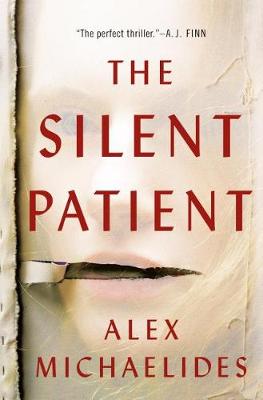Reviewed by clq on
The premise of the book is indeed interesting. A lady has, apparently, killed her husband, and she refuses to speak. We follow a therapist who tries to figure out what happened and/or cure this murder suspect/patient, who, as it happens, is silent. The Silent Patient.
The book plays it fast and loose with a bunch of things, which is fine, but seeing as the plot leans heavily on the premise of a psychotherapist trying to get through to a patient, there was one conceit I just couldn’t get over, which I think broke this story for me. The main character, supposed to be a great therapist, seems like he has no qualifications whatsoever for the job he is trying to do. Saying that he’s learnt his trade from the movies would be doing the movies a disfavour. The main character seems like he has the insight into being a therapist that anyone could pick up from ten minutes of reading the results of a Google-search for “the secret methods phycologists use but don’t want you to know about.”
There is practically no subtext in the book, even when it’s desperately needed. Some places it could have been used quite well for effect, but no, every time something is hanging in the air, creating a much-needed air of uncertainty and mystery, someone just has to state the obvious. Just in case the reader didn’t get it. On it’s own this would be annoying, but combined with a main character who should be a qualified mental health professional, his lack of insight into himself and his surroundings is all the more painful when spoken out loud.
All of this could have been fine, hey, the Da Vinci Code got away with it, if the book had been exciting. But it isn’t. At no point did I feel anything for or with any of the characters. Even in some of the sub-plots (most of which are more interesting than the main plot), in situations where coaxing some emotions out of the reader should be almost unavoidable, the lack of investment in any aspect of the story led to me feeling nothing. The style of the book is somewhere between a transcription of a movie, where the unspoken but implied feelings and motivations of the characters are written down, and a video game where the protagonist goes from place to place to gather information from characters, all of whom have something more to share than they will immediately tell you, requiring you to come back once you’ve gathered information elsewhere. It feels formulaic and chaotic at the same time.
I won’t say anything about the twists, other than that I didn’t like them. Not because they were bad, but because the book didn’t do the work I felt it would have needed to go to get away with them without them feeling contrived. At one point in the book I thought, more as a snide internal comment than anything else, “at the rate this is going, bla bla will probably end up happening”. I literally laughed out loud toward the end of the book when “bla bla” actually happened.
I know I’m being too harsh on this book, and that’s probably why it’s a good idea to avoid reading too much about a book before actually reading it. I thought this was going to be a really enjoyable thriller. Instead it was a relatively original story told in a way which was too in your face to be enjoyable to me, and I didn’t find it to be thrilling or suspenseful at all. I think the wasted potential is part of what annoys me. There is a way to tell this story that could have been great. It might well make for a very good movie, but I just felt like the book could have been quite a lot better.
This would have been a perfectly okay book if I had picked it up randomly at an airport, without expectations, for something to read on a flight. However, having actively sought it out in order to experience what was supposed to have been one of the best thrillers of last year, it fell completely flat. I know that I’m objectively wrong, the popularity of the book has to have come from somewhere, and I’m very glad for the people who liked it. Unfortunately I didn’t.
Reading updates
- Started reading
- 22 February, 2020: Finished reading
- 22 February, 2020: Reviewed
